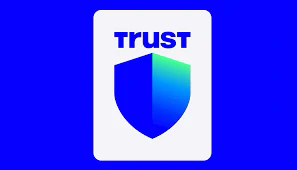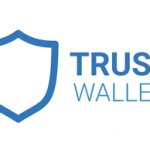Is Trust Wallet Safe? A Comprehensive Analysis
### Introduction
In the rapidly evolving world of cryptocurrency, the security of digital wallets is of paramount importance. As more individuals and institutions adapt to the digital asset landscape, questions arise concerning the safety of these wallets. One particularly popular choice among users is Trust Wallet, and the central question we aim to address in this article is: Is Trust Wallet safe? We will explore various aspects, including its architecture, security features, user practices, potential vulnerabilities, and comparisons with other wallets.
### Understanding Trust Wallet
Before diving into the safety analysis, it is important to understand what Trust Wallet is. Founded in 2017 and later acquired by Binance, Trust Wallet is a multi-cryptocurrency wallet that supports a wide variety of tokens. It is available in both iOS and Android versions and facilitates the storage, sending, and receiving of cryptocurrencies. Its built-in decentralized exchange (DEX) and integration with decentralized applications (dApps) make it appealing to users who are part of the DeFi (Decentralized Finance) ecosystem.
### Security Features of Trust Wallet
#### 1. Private Key Control
One of the core security features of Trust Wallet is that users control their private keys. Unlike custodial wallets, where third-party services hold the keys, Trust Wallet generates the private keys on the user’s device and does not store them on its servers. This means that users have full control over their funds and are less susceptible to hacks that target centralized servers.
#### 2. Biometric Authentication
To enhance security, Trust Wallet offers biometric authentication options, such as fingerprint or facial recognition. These features provide an additional layer of protection against unauthorized access, ensuring that only the wallet owner can access their funds.
#### 3. Encrypted Data
Trust Wallet employs end-to-end encryption for all data, including private keys and personal data, ensuring that even if the user’s device is compromised, the attackers cannot easily access this critical information.
#### 4. Open Source Code
Trust Wallet’s open-source nature allows for transparency in its code. This means that security experts can audit the wallet’s code for vulnerabilities, and community developers can contribute to improving its security mechanisms. Transparency fosters trust and enhances the wallet’s reliability.
#### 5. Multi-coin Support
Trust Wallet supports a broad spectrum of cryptocurrencies and tokens, which means users can manage diverse assets within a single wallet. However, increased functionality demands rigorous security measures, and Trust Wallet meets this challenge.
### User Practices and Vigilance
While Trust Wallet includes a range of security features, the users must also adopt safe practices to ensure the safety of their assets:
#### 1. Secure Backup
Users are encouraged to create a backup of their wallet’s recovery seed phrase—a sequence of words that allows them to recover their wallet in case of device loss or failure. It is crucial to store this phrase securely, as anyone with access to it can control the wallet.

#### 2. Avoid Phishing Scams
Phishing attacks remain a common threat in the cryptocurrency space. Users should be vigilant and avoid clicking on suspicious links or providing sensitive information on unverified platforms. Always double-check website URLs to ensure you are interacting with official platforms.
#### 3. Device Security
Keeping the device running Trust Wallet secure is vital. Users should ensure that their devices are updated with the latest security patches, use antivirus software, and avoid public Wi-Fi when accessing their wallets.
### Potential Vulnerabilities
Despite its many security features, no wallet is completely impervious to threats. Trust Wallet is subject to the same vulnerabilities inherent in mobile applications:
#### 1. Device Theft
If a user’s device is stolen, the thief may gain access to the Trust Wallet if adequate security measures—such as biometric authentication or strong passwords—are not implemented.
#### 2. Malware and Keyloggers
Malware infections can compromise the security of the wallet by logging keystrokes or accessing sensitive data. Users must be cautious about the apps they install and the websites they visit.
#### 3. Smart Contract Risks
When using the wallet for interacting with decentralized applications (dApps), the risks associated with smart contracts come into play. Bugs or exploits in smart contracts can lead to fund loss. Users must remain informed about the dApps they engage with.
### Comparison with Other Wallets
To better understand Trust Wallet’s safety profile, it is helpful to compare it with other types of cryptocurrency wallets:
#### 1. Hot Wallets vs. Cold Wallets
Trust Wallet is a hot wallet, meaning it is connected to the internet and allows for easy access to funds. In contrast, cold wallets (e.g., hardware wallets) are offline and provide superior security for long-term storage. For users with large amounts of cryptocurrency, storing the majority of their assets in a cold wallet while using Trust Wallet for daily transactions may offer a balanced approach.
#### 2. Custodial vs. Non-Custodial Wallets
Custodial wallets, like those provided by exchanges, trade user control for convenience. Users may prefer Trust Wallet if they value privacy and autonomy, as they cannot be frozen or accessed by third parties. Non-custodial options, such as Trust Wallet, empower users but place the onus of security entirely on them.
### Conclusion
Trust Wallet offers a robust set of security measures, giving users considerable control over their funds. As with any digital wallet, the ultimate safety lies in a combination of the wallet’s security features and the diligence of the user. By adhering to best practices and remaining vigilant against threats, users can maximize their safety while utilizing Trust Wallet.
While the convenience and features Trust Wallet provides are significant, it is critical to remain informed and proactive in protecting one’s digital assets. As the cryptocurrency landscape continues to evolve, maintaining knowledge and understanding risks will be essential in safeguarding one’s investments.
In conclusion, Trust Wallet is generally considered safe, particularly for users who practice caution and security hygiene. However, the inherent risks in the digital asset space mean that constant vigilance is necessary to protect digital wealth. Whether users seek a wallet for active trading, long-term storage, or interaction with decentralized applications, Trust Wallet remains a reliable choice with a strong safety profile.


